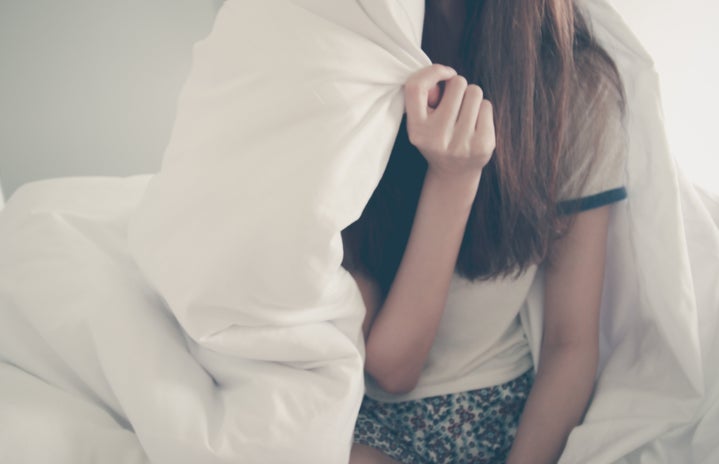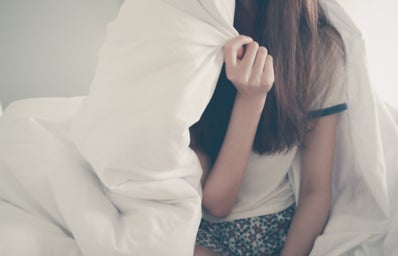Asian women are fetishized and hyper-sexualized, seen as docile and submissive. These perceptions of Asian women as being submissive and exotic are rooted in history. Asian women in their native dress were viewed as being decorative objects or “doll-like.” Another harmful archetype that grew from the sexualization of the Asian female in the media was the ‘dragon lady.’ This depiction of an Asian ‘dragon lady’ depicts Asian women as being exotic and seductive.
What does it mean to have an “Asian Fetish”?
“An Asian fetish is most commonly ascribed to Caucasian, or white-skinned, cisgender males who have the tendency to serial date or pursue almost exclusively Asian women. Today, however, this term can refer to any non-Asian person who preferentially dates or has a sexual preference for Asian women.” – Celeste Ziehl
The fetishization of Asian women (and men) even has a name, “yellow fever.” As if the sexual denigration of Asian women is a disease. The issue with racial fetishization is that such preferences derive from racial stereotypes of Asian women in Western culture and societies.
This is different from an interracial relationship where all partners are equally respected. Fetishizing someone’s race and gender means not caring or respecting that person as an individual.
The mainstream media has created one-dimensional, hyper-sexualized representations of Asian women that have affected the way we are perceived by others. From racist caricatures to lingering stereotypes, cinematic depictions reflect and shape common prejudices.
“Oriental” has been used as an adjective by the West to describe the East. It often represents anything with dragons, red lanterns, lotus blossoms, and other symbols from the “Far East.” So-called exotic aesthetics of objects and artifacts of “oriental” origin ends up getting imposed onto the physical appearance of Asian women. Asian women are tied down to these stereotyped physical characteristics that contribute to their fetishization.
Related Article: Hollywood’s “Hairstreak Asian”: The Evolution of Asian Women in the Media
Asian Canadians and Americans have been experiencing a rise in incidents of hate and violence since the beginning of the coronavirus pandemic. This echoes a historical pattern that has viewed Asians as being foreigners during times of panic and crisis. Groups that have tracked this violence and harassment show that women are disproportionately affected. Anti-Asian rhetoric such as the “Chinese-virus” or “Kung-Flu” have contributed to the incidents of violence.
Related Article: Hate Is a Virus: Protect Asian Lives
Related Article: It’s Time to #StopAsianHate—Here are 8 Accounts to Follow to Stay Informed
Asian women deal with rampant fetishization and objectification, both on- and offline.
Asian women are not passive objects and we are not here to satiate your sexual curiosity.
There is pervasive anxiety between not knowing whether someone will view you as a sex object or regard you as a punchline. The exoticization of Asian women is a racial and gendered experience. This glamourization based on sex and race can have negative impacts on the women who are subject to it.
Racial fetishization is often used to justify harm and violence.

Men who defend their fetish for Asian women as being a preference are really saying that they have bought into the stereotypes and objectification of Asian women as being exotic creatures. This is linked to a longer, more problematic Western subjugation of Asian Women. Yellow fever is not a preference, it is racial prejudice. This is also pervasive in the everyday lives, workplaces, schools, and dating spheres of Asian women.
As an Asian-Canadian woman, I have had to deal with my fair share of “compliments” from men, both online and off-, on how “exotic” I am among many other inappropriate comments laced with racism. These comments are not limited to men either, non-Asian women can also be subject to yellow fever and fuel harmful stereotypes. The forced trope onto Asian women as being both submissive and hypersexual fuels the dehumanization of Asian women. Such comments diminish Asian women as being objects of desire and lust with the sole purpose of fulfilling the sexual desires of men. The racism and sexism that feed these alarming stereotypes are linked to the physical, emotional, and sexual against Asian women.
It is important to recognize that even within an ethnic group or race, fetishization can still occur. Within communities of colour, fetishization can look like the glorification of lighter skin, Eurocentric features, or hair discrimination. The form of fetishization that comes to those who are mixed-race is a whole other topic on its own.
Related Article: Problematic Expectations for Asian Women
Stop referring to Asian women as being “exotic.”
Confront the racial stereotypes you have been exposed to that have shaped your racial biases and add to the degradation of Asian women as people.
Stop the “casually racist” jokes or the mocking/mimicking of Asian accents. These jokes are interlaced with sexism and made at the expense of Asian women who work in places like massage parlours and nail salons. These jokes are not harmless, they are dehumanizing. The dehumanization of Asian women leads to violence against them. Fetishes and stereotypes contribute to rape culture and deny Asian women the agency to their own bodies, consent, and safety.
Asian women are not here for you to fixate and force your sexual desires and fantasies on. We are not meant to be objects of desire or decorative dolls to look at. We are human beings.



